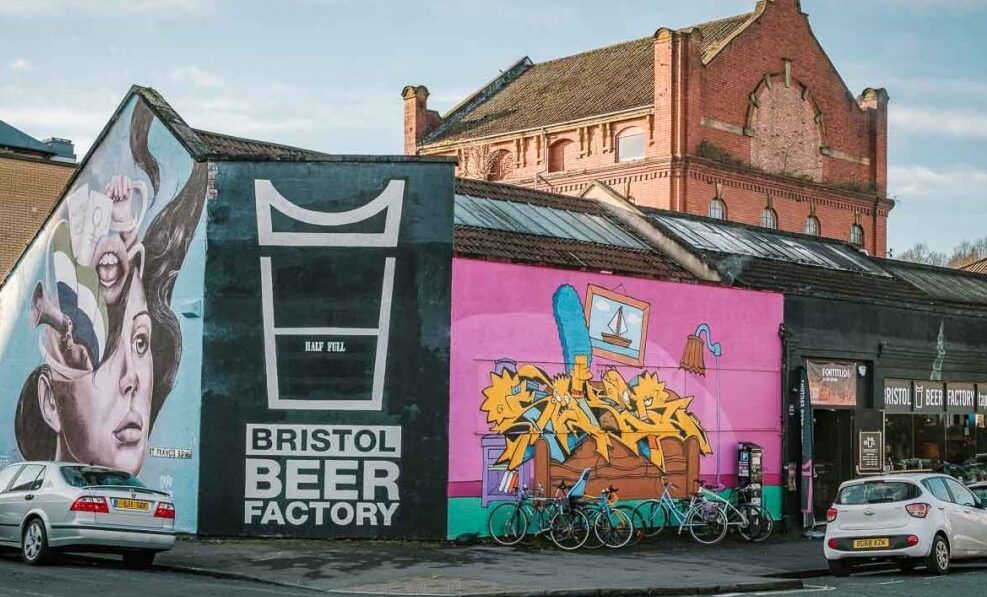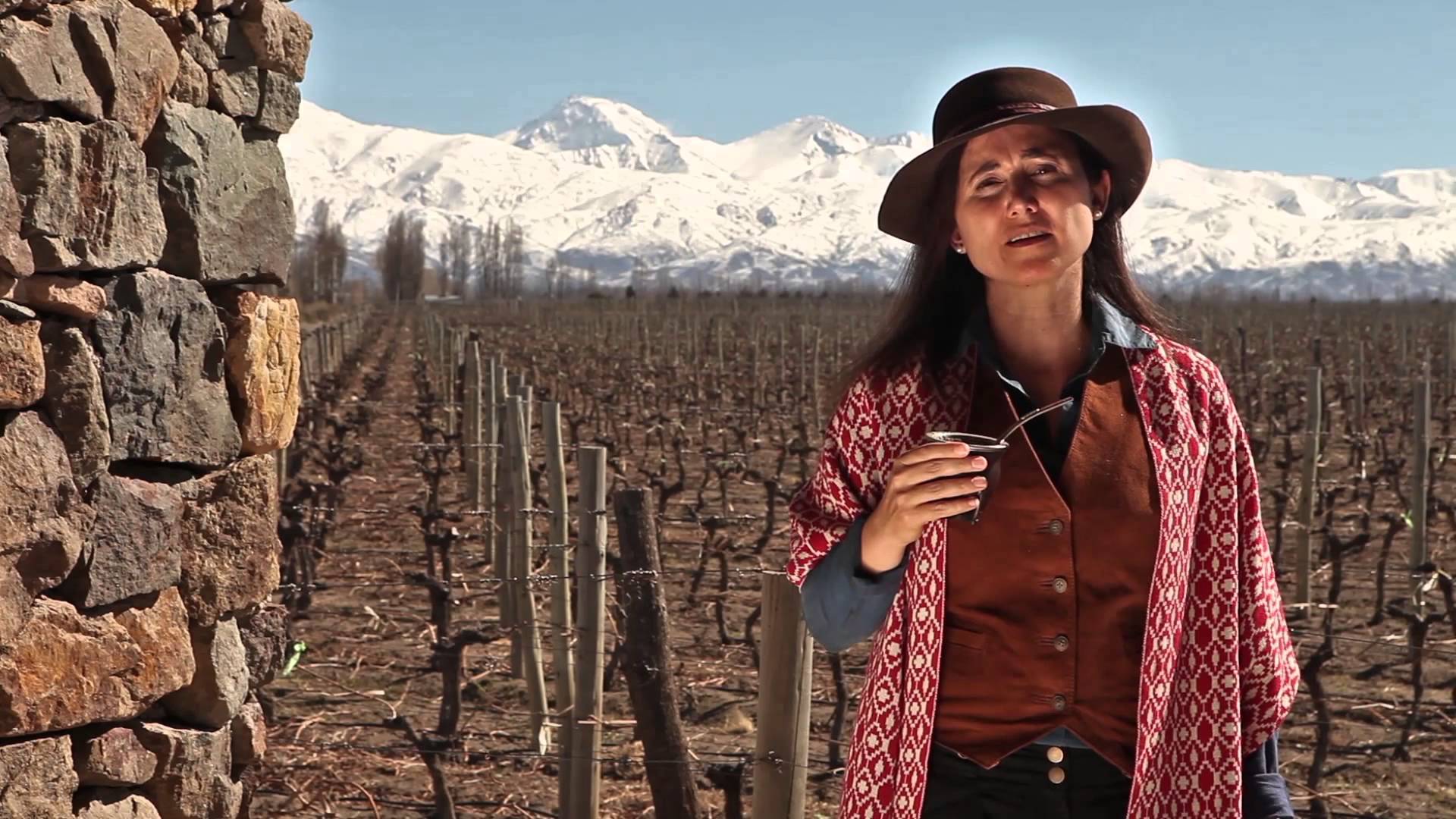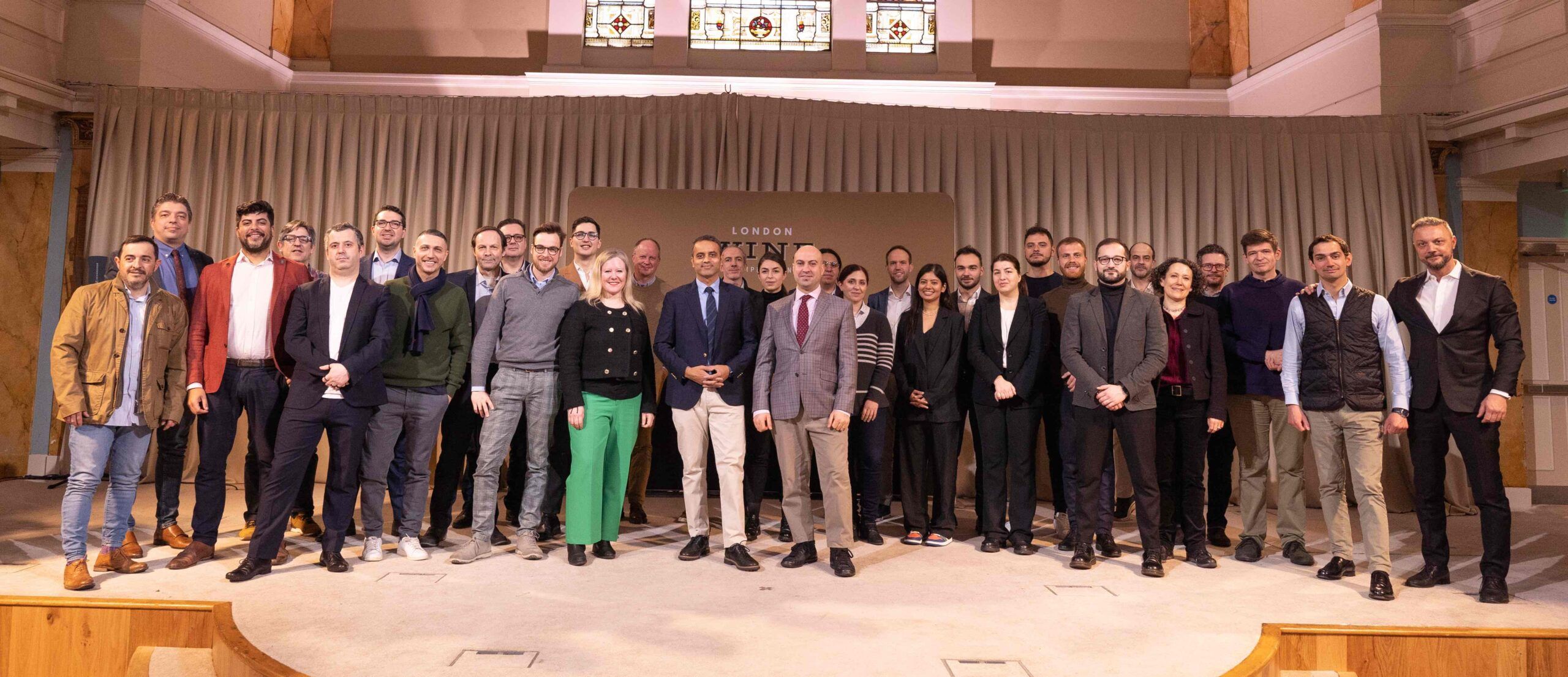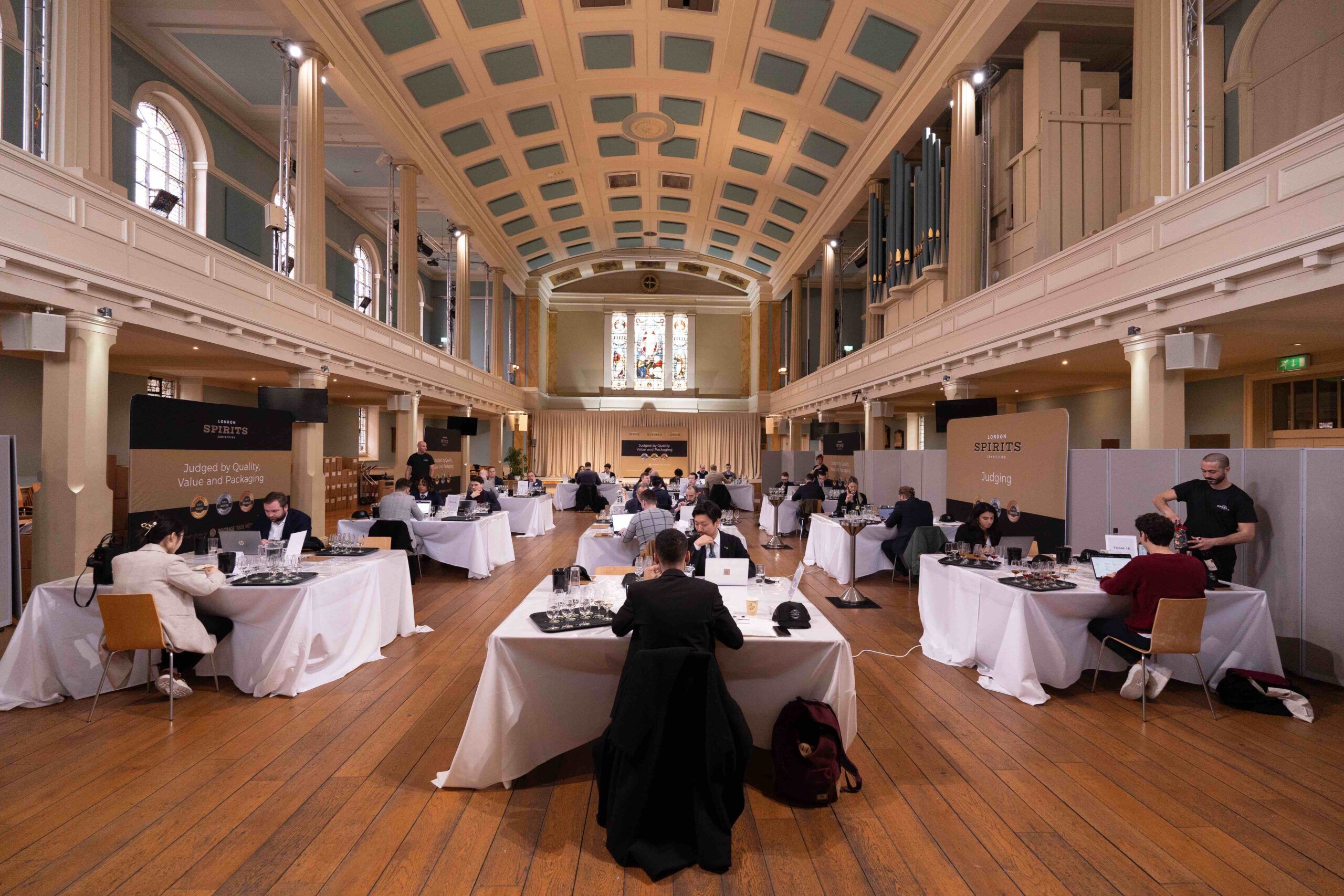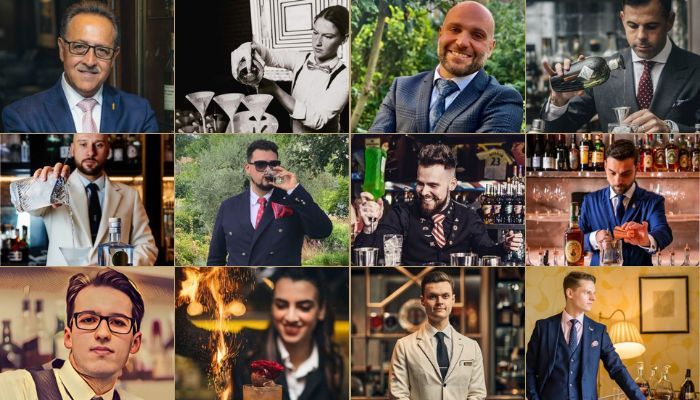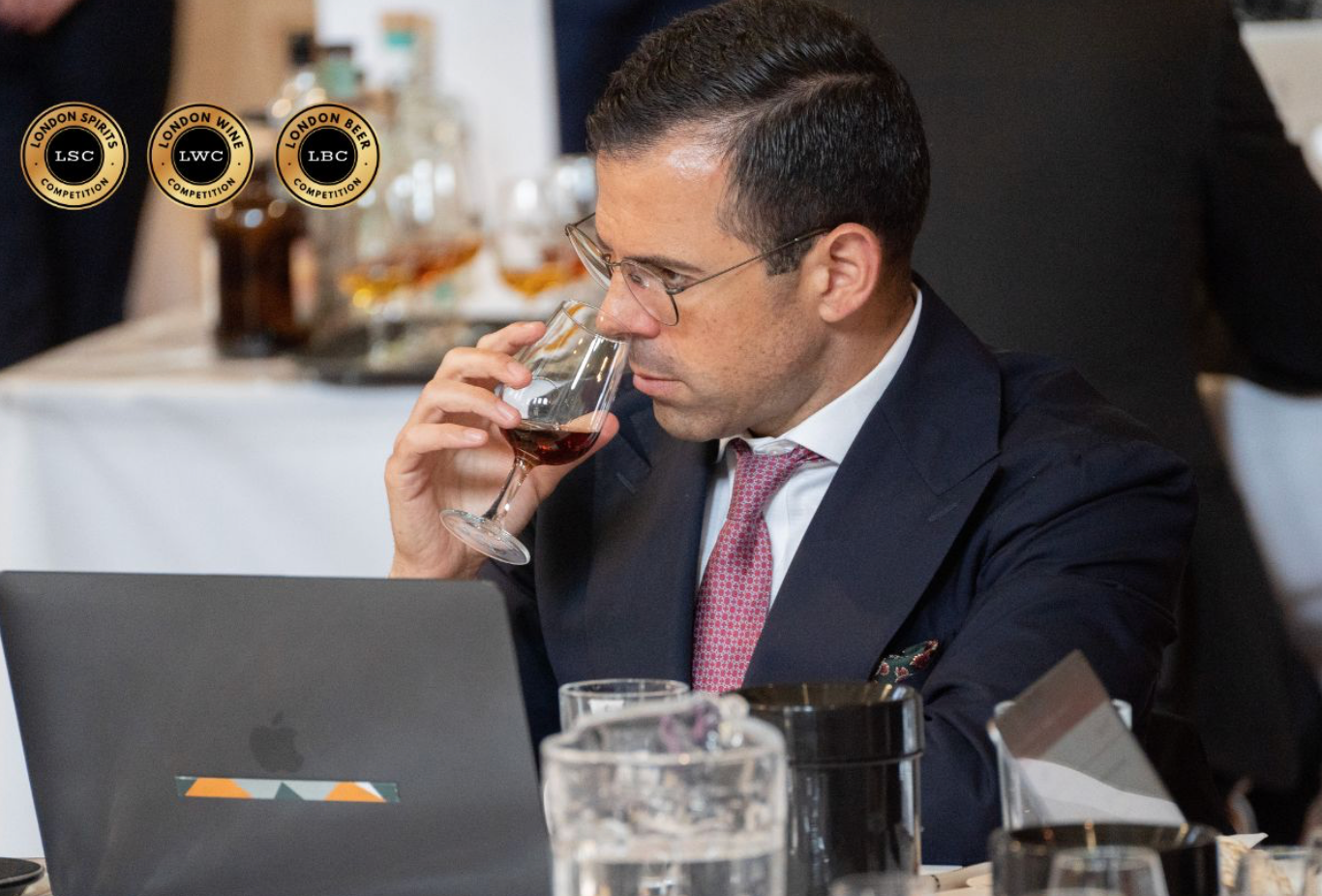The Bristol Beer Factory has brought brewing back to the heart of the city and a business that is looking to do far more than just make beer.
My friends are always trying to persuade me to move to Bristol. Their case has just got a bit stronger. My ‘visit’ to Bristol Beer Factory was restricted to Zoom, but while chatting to head of sales, Sam Burrows, it was still clear to see the energy and innovation that has driven it through the pandemic year. This is a business with grit.
While pouring beer down the drain was the harsh reality last year, Bristol Beer Factory still found ways to give back to its loyal community. It created its debut non-alcoholic beer to support men’s mental health charity, Talk Club. The kind of story that makes you realise the resilience that’s out there, particularly in hospitality, and our unwavering dedication to helping each other out.
A Mental Health Movement IPA
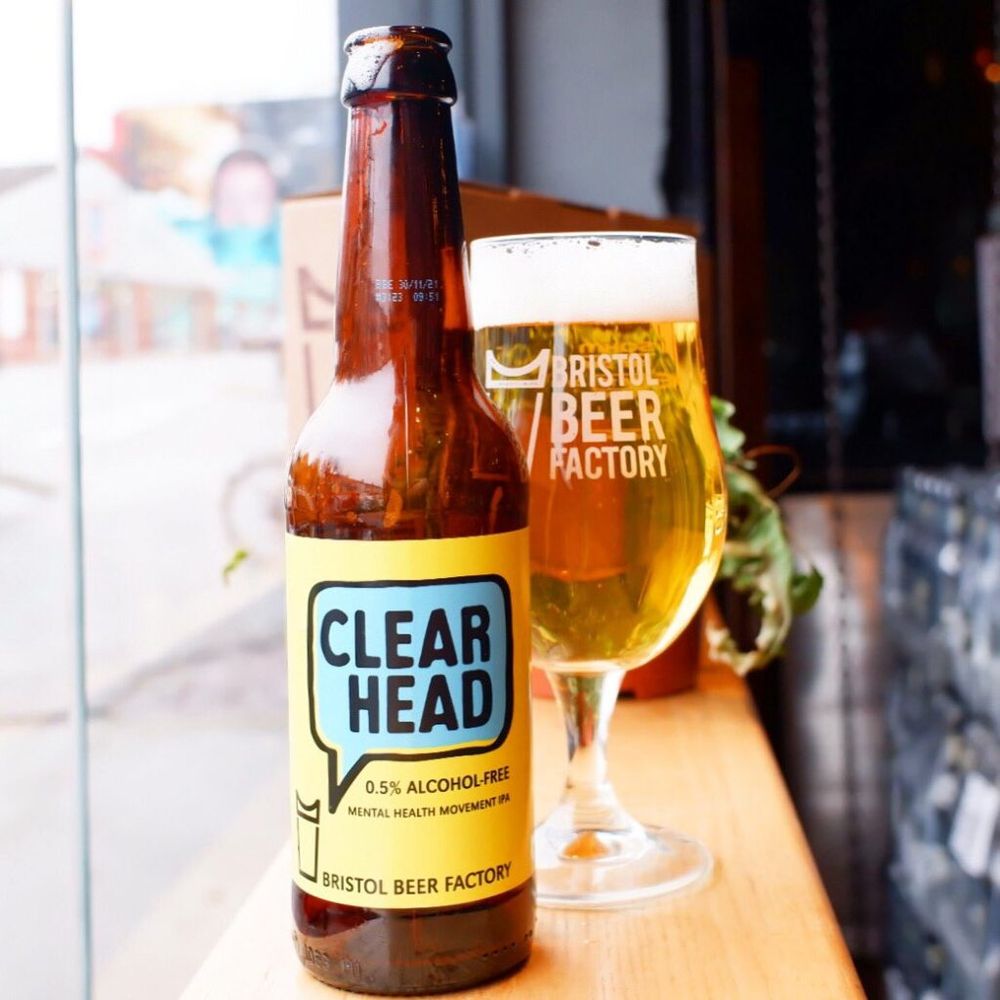
Beer with a cause: Clear Head from Bristol Beer Factory has been made to provide support for men’s mental health charity Talk Club
Despite several last-minute tier 4-related address swaps Burrows managed to send over a haul of beers including the new kid on the block, Clear Head. “The Clear Head project is one of the big positives to come out of 2020,” Burrows tells me.
Clear Head’s a 0.5% beer brewed in partnership with Bristol-based charity Talk Club. The un-beer is made with Mosaic and Citra hops and “clear as a bell, lovely and pale and crisp”. It’s the real deal – or at least it tastes like it.
Alcohol-free beer in general has come a long way from the strange, slightly sickly attempts of old. The aptly-named Clear Head is such a convincing imitation that I began to wonder whether to ever go back to alcohol (well for a second or two).
Rachel Davey, who looks after the brewery’s PR, agrees. She tried her fair share of alcohol substitutes while pregnant. “Clear Head is the first non-alcoholic beer I’ve ever drunk when you honestly believe you’re drinking a quality craft beer,” she says. “My husband is converted too.”
The idea for Clear Head came about from Talk Club founder, Ben Acres, who founded the charity after he lost a close friend to suicide in 2014. Suicide is the biggest killer of men under 49, and the concept is to help men through regular work on their mental fitness. Attendees rate how they are feeling out of 10, which can be easier than answering an open-ended “How are you?”.
Burrows says he felt cautious about attending when he was having a “9 day” but the point is to maintain your mental fitness as you would your physical. “Talk Club is phenomenal to be involved with and to see men sharing and talking openly, and I think if you are feeling good it’s an inspiration to others to share that too,” he adds.
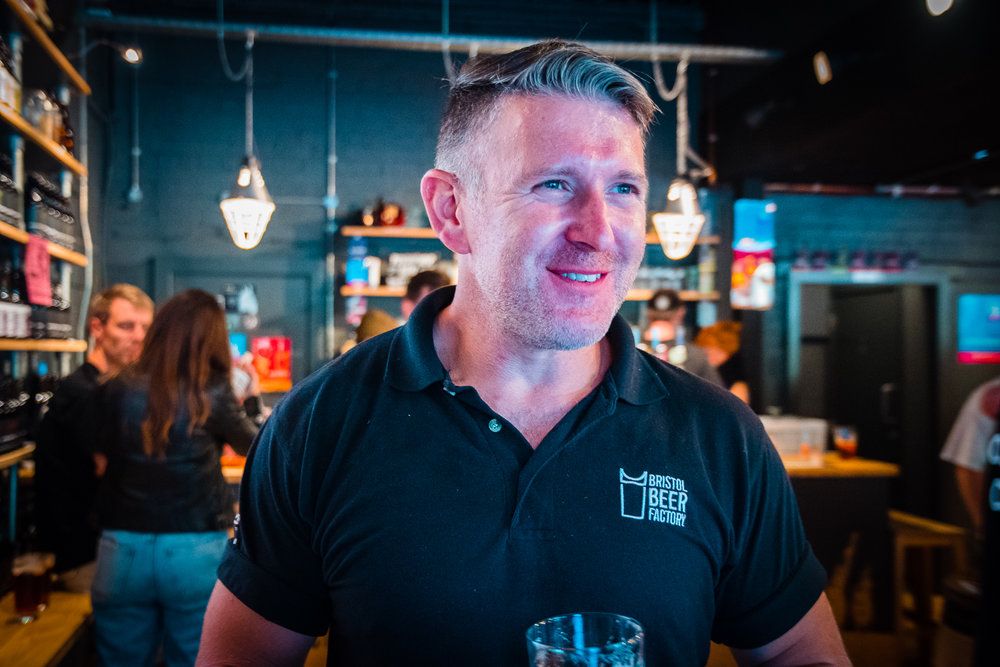
Bristol Beer Factory’s Sam Burrows is hopeful its work with Talk Club can help offer more support to men and help them keep on top of their mental health
Acres realised that pubs would put members more at ease than meeting in clinical settings. But alcohol and poor mental health can be a problematic combination. He requested a non-alcoholic option that maintained the feeling of a normal pub trip. Cue, Clear Head.
The brewery was delighted to have an opportunity to give back and support Talk Club. Five per cent of Clear Head sales will go to the charity. Going forward, Burrows sees an opportunity for Clear Head in both the on and off-trade channels. He hopes to be able to provide a three-way partnership, giving suppliers of Clear Head access to mental health support from Talk Club. He has already put the feelers out to the off-trade ready for potential range reviews post Covid-19.
“That’s the dream, doing something really positive within the trade. It’s great for a brewery to do something to help support men’s mental health fitness. I’m pretty sure people will be interested in doing that because it’s such a positive message. Everyone’s a winner.”
Back to Bristol’s brewing roots
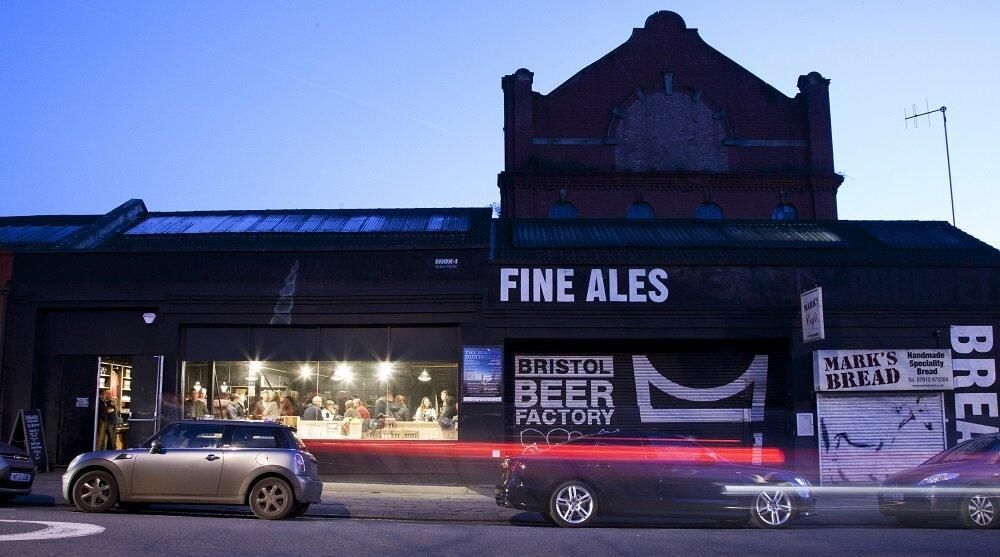
The Bristol Beer Factory has brought brewing back to a part of Bristol that has been brewing beer since the 1820s
Bristol Beer Factory sits in the last fermentation tower of Ashton Gate Brewery in south-west Bristol. Just a stone’s throw from Ashton Gate football stadium, beer has been brewed on the site since the 1820s. The site brings charm and history as well as 21st-Century access issues and new residential neighbours.
The brewery was bought by Bristol Brewery Georges & Co Ltd (later Courage Barclay & Simonds Ltd) in 1935, but the site changed allegiances across the decades, becoming a tyre garage and motor shop before Bristol Beer Factory brought it back to brewing in 2004. “Back in 2003 Southill was quite dilapidated but it’s one of those areas that’s been gentrified and it’s grown into a very independent area,” explains Burrows.
Co-founder George Ferguson had the express aim of resurrecting south Bristol’s brewing tradition. His mission attracted the attention of Simon Bartlett, who had worked in engineering for Briggs Equipment and worked all over the world building breweries for Guinness and George. Bristol Beer Factory was born.
Bristol’s unique craft beer community
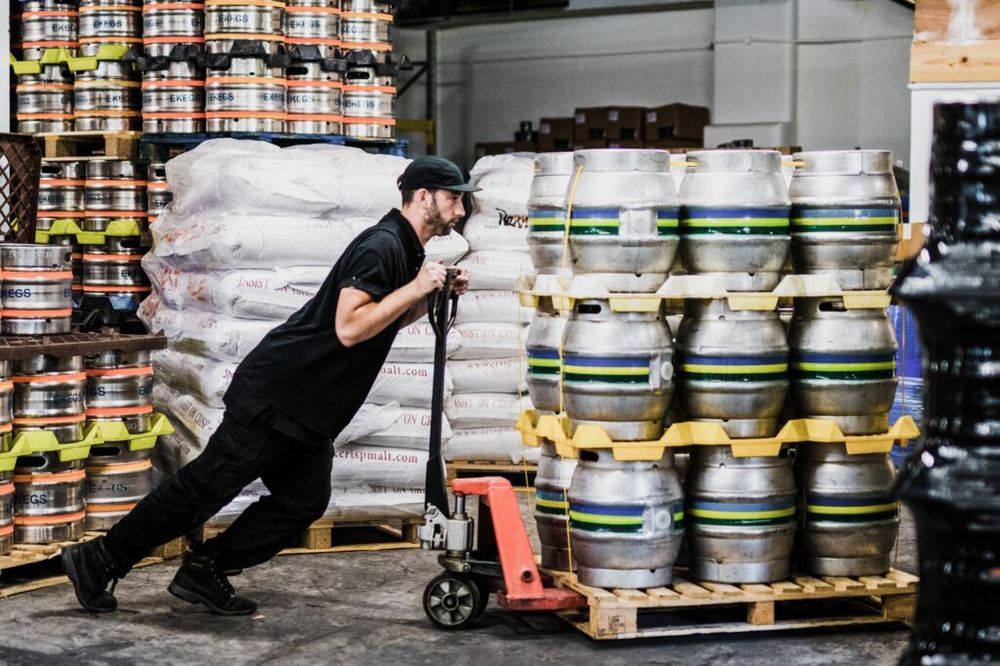
The Bristol Beer Factory has grown gradually over the last 15 years widening both its customer base and the range of beers it can offer
Back in 2004 the brewery mainly produced a few cask beers for local pubs. The business bubbled along until about 2010, when turning tides in brewing across the world made it rethink its approach. It looked to bring in new brewing talent, including Californian brewer Brett Ellis (now Wild Beer Co) who brought both hops and knowledge from the flourishing American craft beer scene.
“Some of our biggest brands were born then, like the Independence and our big multi award-winning IPA, Southville Hop,” says Burrows, who joined the company in 2011.
“We were probably the pioneer in the Bristol for the craft beer scene,” he adds. “Many have followed since – there are some brilliant breweries in Bristol. The scene is Bristol now is so vibrant, it’s a real hub of the beer industry here.”
Despite the competition Burrows says community spirit is strong in Bristol. “Thankfully we all huddle together and look after one another, and share ideas and practice. That’s quite a unique thing, the city of Bristol is like that. We all try and work together and let our beers do the talking.”
Developing a business strategy

Pushing the brand on social media and showing its personality on platforms like Instagram have been key in developing the brand
Before joining Bristol Beer Factory Burrows worked in national accounts and brand activation in the South West for Charles Wells Ltd (now Wells & Young’s Brewery). “Simon [Bartlett, managing director] said ‘do you want a pay cut and to come and work here?’” reflects Burrows. “It was the best move I’ve ever made”. Moving from a £300 million business to a £350,000 business was quite a culture change, but gave Burrows a chance to really put his stamp on something.
He began by developing a strategy to push the brand out. The brewery’s main focus was, and still is, Bristol. He started by growing relationships with the best independent bars and pubs in Bristol, and then worked on the route to market in other big cities. He found a wholesale partner “up in” in London, Pigs Ears, and some small pub groups to work with like The Euston Tap and Bloomsbury Leisure Group.
He started growing the brand through social media, too. “We didn’t have a marketing budget. It was just doing the basics: The right beer, in the right bars, with the right people drinking them and talking about them on social media. That’s how we started to get our name out there.”
A succession of awards helped. In 2009 the Milk Stout won CAMRA Champion Winter Beer with a recipe that dates back to the 1800s. But the brand really gained a national reputation for its bottled beers at the SIBA awards, where it won successive national titles in 2013, ‘14, and ’15.
Expanding the brewery
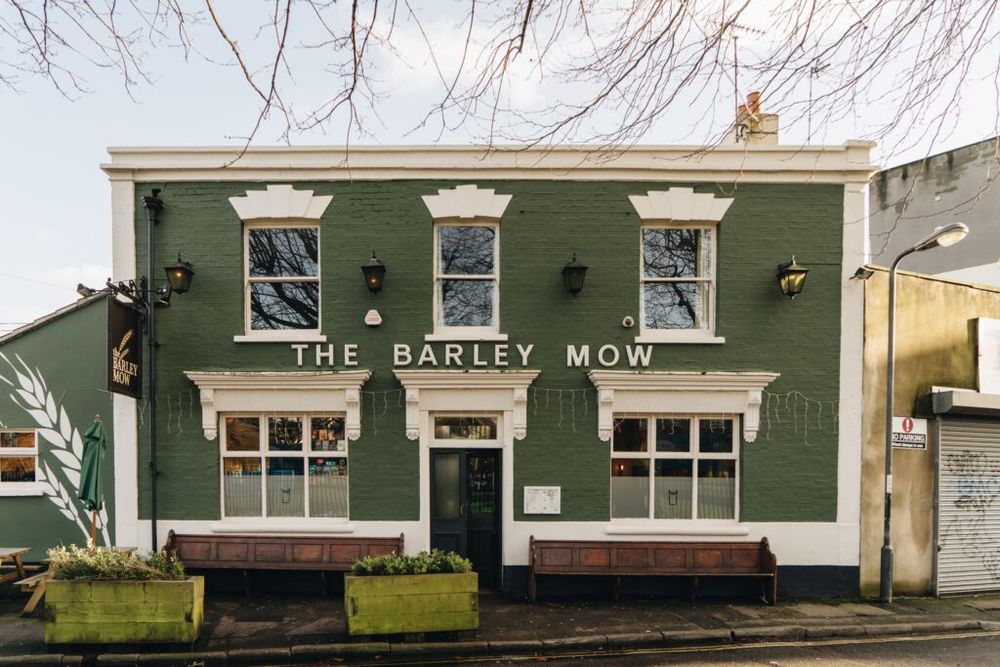
The Bristol Beer Factory now runs its own pub in Bristol – the Barley Mow
The business grew at about 35% YOY until 2014, when it hit brewing capacity. It invested in a new brewery October 2015, tripling brewing capacity. “After that moment we decided to invest in people, which is what we’ve been doing ever since,” says Burrows. Now there is a team of 19 at the brewery, plus three on-trade sites: The Barley Mow pub, Arnolfini Café Bar, and the brewery’s own tap room.
The next necessary move was investment. Twenty per cent of the business was sold to two new non-executive board directors: Guy Newell of Butcombe Brewery, and the Eggleton family with TV celebrity chef Josh Eggleton.
“They were really good fits for us as a business,” says Burrows. “We had the retail angle from Josh and his family, and we had the brewing experience coming from Guy Newell and his wife Becky. Their guidance has been incredible for us.”
The impact of Covid
The brewery’s business is normally 92% on-trade and 8% off-trade. While its beers are stocked in supermarkets including Waitrose and Co-op, the focus on quality cask beer means it is better suited to serving on-trade customers. Turnover was around £3 million in 2019. That was halved in 2020 and a lot of beer was poured away, says Burrows.
Like many businesses last year, the team innovated to survive. “Instead of being glum and miserable we have rallied around and started some really interesting new projects to help us come out of Covid stronger than ever,” he explains.
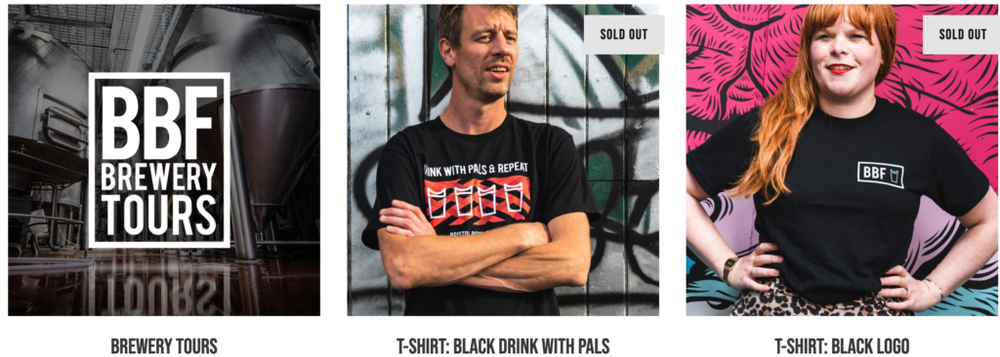
The Bristol Beer Factory now runs a very successful e-commerce site selling its full selection of beers along with an increasingly popular merchandising range
The team was able to support entrepreneurial Bristol-based customers who upped their online offering during the first lockdown, particularly during the good weather. “That was a godsend to us as we were going to throw away hundreds of thousands of pints of beer,” said Burrows.
The quick transition to online revealed problems in the brewery’s website and infrastructure to process deliveries and collections. Duchess Media did an audit of the website and found that despite high traffic volumes, the conversion rate was at just 46%.
“We knew that we were missing out, we should have been tripling our online sales. A lot of the problems were back of house. It was slow and clunky,” admits Burrows. In December the brewery launched a shiny new e-commerce site through Shopify. “Things seem to be moving well now with the new site. It’s crazy downstairs, there’s hundreds of orders going out every day which is so welcome at the moment.”
What’s next for the brewery?
“The next six months is about getting our beers into cans,” says Burrows. Although he admits they are a little behind the curve with this, they see the benefit of cans. Not least reducing the environmental impact from bottles. But also helping customers carry more to the park when they are (eventually) allowed to do so. Long term, they’re keeping an eye on export opportunities, too.
Burrows’ top advice for other small businesses
Typically his final thoughts are to offer advice to other small businesses looking to make the next step: “Be as proactive as possible. Diversify where you can. Take a step back and give yourself a good 360 look at and see what opportunities lie there for you. Have a good two-to-five-year plan of what you’re trying to achieve, who you want your consumers to be, what channels you want to work in, and then go after them and go after them properly instead of scatter gunning yourself around.”
- Find out more about Clear Head and the other Bristol Beer Factory Beers here.
